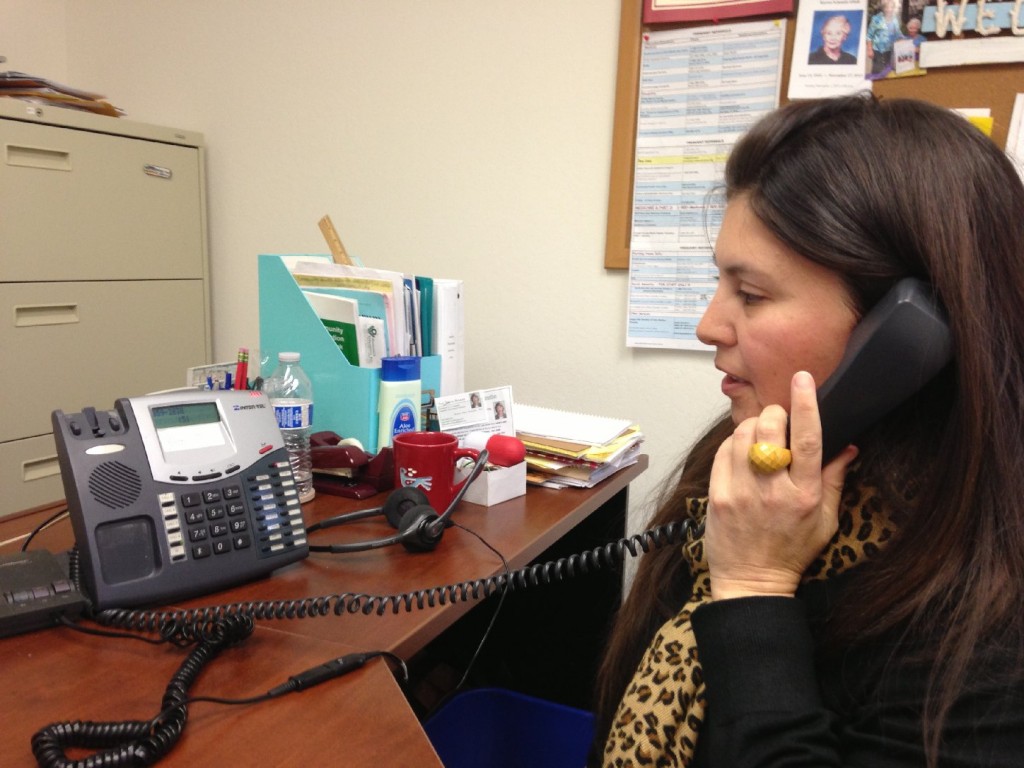The new project streamlines the two plans into one for this population. It also incorporates community-based services and in-home services, all under one umbrella. Kahn says this should make it easier for seniors to use their benefits, and hopefully, save the state some money.
“But really the overall goal is to keep people at home,” she says, “and to prevent them from being admitted into a skilled nursing facility, which is really expensive for Medi-Cal to pay for.”
The goal is also to coordinate care better for this frail group. The new plans will pay care coordinators to help seniors get services from local nonprofits. It now covers the costs of installing a grab bar in a bathtub to prevent falls, for example, or a taxi to the doctor, so people don’t skip appointments because they can’t find a ride. Kahn says this will help keep people healthy and at home at a time when the aging population is outpacing the capacity of institutional care.
“We don’t have enough convalescent homes to take care of people in our county,” she says. “Real estate is really expensive, and it’s not easy for a skilled nursing facility to stay afloat.”
Moving too fast?
California is one of nine states that was approved by federal agencies to participate in the three-year pilot project. It’s one of the first to get started. Seven counties are affected. San Mateo, San Diego, San Bernardino and Riverside are sending letters now to people whose new plans will go into effect in April and May. Alameda and Los Angeles plans take effect in July, and Santa Clara will start next January. An eighth county, Orange, is on hold indefinitely.
Some advocates say the state is moving too fast, too soon.
“California’s demonstration has been the most controversial because it’s so much more ambitious,” says Kevin Prindiville, executive director of the National Senior Citizens Law Center, based in Oakland.
About half a million Californians will be transferred into the new test program, and he’s worried counseling centers won’t have enough resources to ensure a smooth transition.
“We don’t think there’s been enough federal money or enough state money or enough of a lead time to train those folks on what’s happening and for those agencies to get beefed up to answer the demand,” he says.
Kahn says people calling the San Mateo counseling office generally have two questions: “Providers. Are my providers covered? And then they’ll ask how to opt out.”
In the San Mateo plan, for example, some specialists at UC San Francisco aren’t covered. Kahn says rather than getting a chance to explain the virtues of the program, she’s mainly helping people like Andrea sidestep the automatic enrollment and keep their current plans.
“I know through Obama, everything’s changing,” she says. “But, when I’m offered basically what I had before, I figured it worked, so why change it?”
Kahn says it will take some time before seniors understand how the program might help them.
If you believe you are affected by the new Cal MediConnect program and have questions, call 800-434-0222 to be connected to the Health Insurance Counseling and Advocacy Program in your county.
